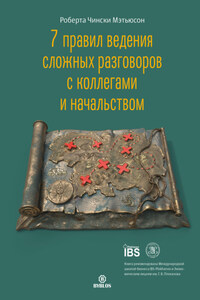Whatever may be said as to distinction of classes in England, it is certain that in no country in the world is the upward path more open to those who brace themselves to climb it than in our own. The proportion of those who remain absolutely stationary is comparatively small. We are all living on a hillside, and we must either go up or down. It is easier to descend than to ascend; but he who fixes his eyes upwards, nerves himself for the climb, and determines with all his might and power to win his way towards the top, is sure to find himself at the end of his day at a far higher level than when he started upon his journey. It may be said, and sometimes foolishly is said, that luck is everything; but in nineteen cases out of twenty what is called luck is simply a combination of opportunity, and of the readiness and quickness to turn that opportunity to advantage. The voyager must take every advantage of wind, tide, and current, if he would make a favorable journey; and for success in life it is necessary not only to be earnest, steadfast, and true, but to have the faculty of turning every opportunity to the best advantage; just as a climber utilizes every tuft of grass, every little shrub, every projecting rock, as a hold for his hands or feet. George Andrews had what may be called luck – that is, he had opportunities and took advantage of them, and his rise in life was consequently far more rapid than if he had let them pass without grasping them; but in any case his steadiness, perseverance, and determination to get on would assuredly have made their way in the long run. If similar qualities and similar determinations are yours, you need not despair of similar success in life.
"You heard what he said, George?"
"Oh, mother, mother!"
"Don't sob so, my boy; he is right. I have seen it coming a long time, and, hard as it seems, it will be better. There is no disgrace in it. I have tried my best, and if my health had not broken down we might have managed, but you see it was not to be. I shall not mind it, dear; it is really only for your sake that I care about it at all."
The boy had ceased sobbing, and sat now with a white set face.
"Mother, it will break my heart to think that I cannot keep you from this. If we could only have managed for a year or two I could have earned more then; but to think of you – you in the workhouse!"
"In a workhouse infirmary, my boy," his mother said gently. "You see it is not as if it were from any fault of ours. We have done our best. You and I have managed for two years; but what with my health and my eyes breaking down we can do so no longer. I hope it will not be for long, dear. You see I shall have rest and quiet, and I hope I shall soon be able to be out again."
"Not soon, mother. The doctor said you ought not to use your eyes for months."
"Even months pass quickly, George, when one has hope. I have felt this coming so long that I shall be easier and happier now it has come. After all, what is a workhouse infirmary but a hospital, and it would not seem so very dreadful to you my going into a hospital; the difference is only in name; both are, after all, charities, but the one is kept up out of subscriptions, the other from the rates."
His mother's words conveyed but little comfort to George Andrews. He had just come in from his work, and had heard what the parish doctor had told his mother.
"I can do nothing for you here, Mrs. Andrews. You must have rest and quiet for your eyes, and not only that, but you must have strengthening food. It is no use my blinking the truth. It is painful for you, I know. I can well understand that; but I see no other way. If you refuse to go I won't answer for your life."
"I will go, doctor," she had answered quietly. "I know that it will be best. It will be a blow to my boy, but I see no other way."
"If you don't want your boy to be alone in the world, ma'am, you will do as I advise you. I will go round in the morning and get you the order of admission, and as I shall be driving out that way I will, if you like, take you myself."
"Thank you, doctor; you are very good. Yes, I will be ready in the morning, and I thank you for your offer."
"Very well, then, that's settled," the doctor said briskly. "At ten o'clock I will be here."
Although a little rough in manner, Dr. Jeffries was a kind-hearted and humane man.
"Poor woman," he said to himself as he went downstairs, "it is hard for her. It is easy to see that she is a lady, and a thorough lady too; but what can I do for her! I might get her a little temporary help, but that would be of no use-she is completely broken down with anxiety and insufficient food, and unless her eyes have a long holiday she will lose her sight. No, there's nothing else for it, but it is hard."
It was hard. Mrs. Andrews was, as the doctor said, a lady. She had lost both her parents while she was at school. She had no near relations, and as she was sixteen when her mother died she had remained at school finishing her education and teaching the younger children. Then she had obtained a situation as governess in a gentleman's family, and two years afterwards had married a young barrister who was a frequent visitor at the house.














